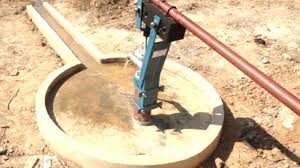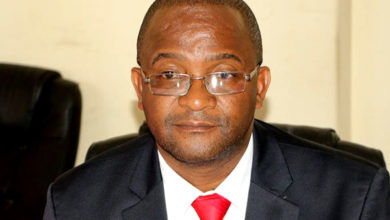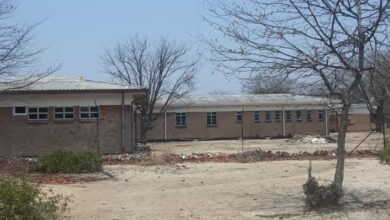Byo turns to boreholes as water woes worsen

Bulawayo Provincial Affairs and Devolution Minister, Judith Ncube, has encouraged the Bulawayo City Council (BCC) to collaborate with the District Development Fund (DDF) to drill and fix malfunctioning boreholes to augment water supplies to the city.
The city has over 300 boreholes, but the majority of them need to be repaired, and new ones are needed particularly in the eastern suburbs, says BCC.
BCC has also projected that it will decommission two of Bulawayo’s supply dams -Lower Ncema and Umzingwane in July and August respectively.
Although the provincial affairs minister recognised that power outages are to blame for the current water issue, she stated that the city has to find other ways to provide water.
“Let’s not wait for the situation to cause a health hazard. As we put the water crisis committees in order, let’s talk about boreholes. At one time we agreed on boreholes. To the City of Bulawayo and DDF, I say work as a team,” Ncube urged.
Ncube confirmed that some people had vandalised boreholes for personal gain, but officials cannot sit and fold their hands.
“Some who have vandalised the boreholes are outsiders and they lose nothing. Some take the pumping equipment to either sell or melt to make money. But we can’t sit back. We need to continuously try to come up with possible ways of minimising our challenges,” said the provincial minister.
She also advised the acting BCC Engineering Services Director, Engineer Sikhumbuzo Ncube, to contact DDF engineers as soon as possible.
“Start talking and resume on what you had previously agreed. The report of the recommendations is known on top. There are many dead boreholes and there is water underneath, so work with these people,” Ncube said.
The provincial affairs minister also said BCC must use devolution funds to purchase bowsers.
“Devolution funds come from time to time, anything to do with amenities, use devolution funds to buy bowsers,” Ncube said.
The province minister’s comments came after Acting Town Clerk Sikhangele Zhou stated that the immediate option to provide water was to resuscitate water kiosks or elevated tanks in various suburbs by filling them with water and using water bowsers.
“We can bowse water then tell people to come fetch water. In the eastern side, there are no water kiosks. We know the assumption was most people in the eastern side can drill their own boreholes but that is a wrong assumption because the economy has changed and as a city we have one city concept,” she said.
“Unfortunately, our developing partners that assist us target the western areas as their target population. We can’t force them to come to the eastern side but we need to bowse water.”
Zhou said the challenge was the limitation of resources.
“The city has four bowsers but these are old and need constant repair. Our appeal is to have companies donating bowsers, or even hiring them to us at a reasonable rate,” she said.
“The city has not drilled any borehole but we have over 300 boreholes that were built, starting with the 1992 drought but from time to time they become dead. The other strategy is to revise those boreholes so that they can get borehole water.”
However, the acting town clerk decried that companies that could repair the boreholes were charging astronomical rates.
“The quotations we see are shocking. Our procurement manager says we cannot afford that. We know this is a crisis but don’t take advantage, we don’t know if that is the going rate but we don’t have that money. The prices we are seeing will kill us. We can’t procure something that will kill us, it’s unsustainable,” said Zhou, who is also the Chamber Secretary.
She also noted the city’s plan is to supply reticulated water and not rely on bowsers or borehole water.
“These are measures we resort to in times of crisis. Ordinarily, we need to have more bowsers to assist in the crisis but for us to buy bowsers as a way of giving people water, would become a sign that we have accepted our failure to provide reticulated water,” Zhou explained.
“Bowsers come in a time of crisis but our efforts as a city is to provide reticulated water to households. That is our focus, we need to have reticulated water then the bowsers can be working elsewhere when the matter is solved.”






